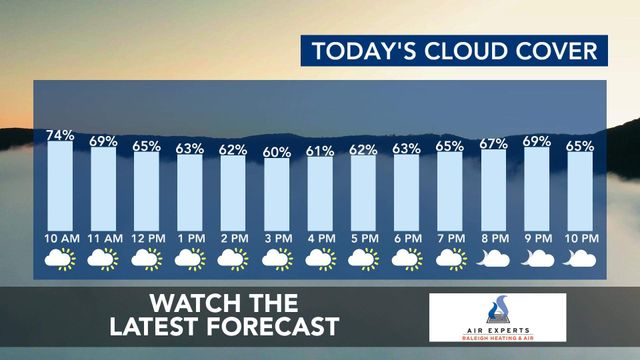NC State lab empowers organic chemistry students to conduct hands-on lab experiments from anywhere
North Carolina State University students studying organic chemistry no longer have to visit a lab in person to complete coursework.
The university’s Rob-O-Chem lab at 851 Main Campus Drive in Raleigh allows students to participate in hands-on research, regardless of their location. It allows students to fully participate and physically coordinate live movements using machinery through a computer to conduct experiments as if they were in the room.
“We designed [it] to be able to perform literally the very first organic chemistry laboratory experiment you do as an organic chemistry student at NC State,” said Ryan Chiechi, an associate professor of chemistry.
Chiechi said the first experiment organic chemistry students do at the school is called the Thin Layer Chromatography [TLC], which is a simple, quick, and inexpensive procedure that gives the chemist a quick answer as to how many components are in a mixture.
The Rob-O-Chem lab is used for students who are unable to access the physical lab due to various circumstances such as military deployment, disabilities, health concerns or chemical sensitivities. The current setup accommodates dozens of organic chemistry students per semester. It also allows more students to take organic chemistry classes without having to build more physical infrastructure.
Aram Amassian, professor of materials science and engineering, had the idea to use automation in his research lab after teaching a student with limitations and disabilities.
“At the time, I decided that we would sort of double down on developing certain automation tools that would allow researchers to be able to also access experimental, hands-on research in a more hands-free manner through computer interfaces,” Amassian said. “So, that was one of the initial sparks for this type of work.”
Joe Schroedl is a senior computer engineering student at NC State who helped develop the automated platform the Rob-O-Chem lab uses.
“I designed, built, tested and programmed all the robot hardware to do this stuff,” Schroedl said.
Schroedl said Rob-O-Chem lab and machinery can create devices like LEDs, solar panels and cell phone displays. The technology allows for students to use a computer interface to direct a machine to conduct a TLC experiment.
“[The machinery is] used for making semiconductor material, and these chemicals are combined and deposited on a little glass plate there,” Schroedl said. “That’s mainly what our lab is focusing on.”

Amassian estimated the equipment cost a little bit less than $10,000. Amassian’s research, an internal grant from the Data Science Academy and support from DELTA (Digital Education and Learning Technology Applications) helped bring the Rob-O-Chem lab to fruition.
“It’s off-the-shelf parts with really talented people,” Chiechi said.
Chiechi said the Rob-O-Chem lab uses open-source software, so there aren’t recurring costs to continue to maintain the lab.
“We’re building this in-house with students like Joe,” Amassian said. “We are recruiting them, we are giving them the opportunity to do an internship, we are paying them to help with their cost of living, and giving them an opportunity to do professional development and so on.
“We could certainly hire a company, buy this very, very expensive equipment from outside, but I guess what we’re doing is we are developing this in-house also because it doesn’t exist. It’s sort of an off-shoot, it’s a spinout of the unique research that we have at NC State.”

Chiechi said the lab will appeal to prospective students from all over the world because they won’t have to physically be in person to use the technology.
Also, he said the Rob-O-Chem lab is an improvement over remote work done by students during the pandemic. That work allowed professors and students to simulate experiments, but it didn’t teach them the lab work. The Rob-O-Chem lab simulates what it’s like being in a lab without physically being there.
“It shows that you can bring this kind of automation to chemical education,” Chiechi said. “I don’t think that that’s something that people really thought about.”
Amassian and Chiechi discussed how the university conducted a survey to see how the students liked using the Rob-O-Chem lab compared to doing the experiments in a physical lab. He said the learning outcomes were generally the same.
“From an educational perspective, I really liked seeing the students be excited by it because they’re like, ‘Oh, here’s a digital component to this thing that is usually very analog … Ok, well let’s go back to the Stone Age and go to a lab and bang on glassware,’” Chiechi said. “But, it also allows us to open it up to more people and still maintain the reasons that it’s still kind of a Stone Age experience, which is hands-on and tactile.”
Amassian echoed Chiechi’s sentiments.
“The vision of the lab was to enable research to be accelerated,” Amassian said. “We wanted materials and chemistry research to be accelerated to solve societal problems a lot more quickly than we can today.”
Chiechi said he and Amassian are trying to get more funding to expand Rob-O-Chem labs to NC State as well as other colleges and universities.
“We visit schools,” Chiechi said. “One of the impetuses for doing this was to help students with physical disabilities who couldn’t otherwise work in a lab [to] be able to work through the automation.”










